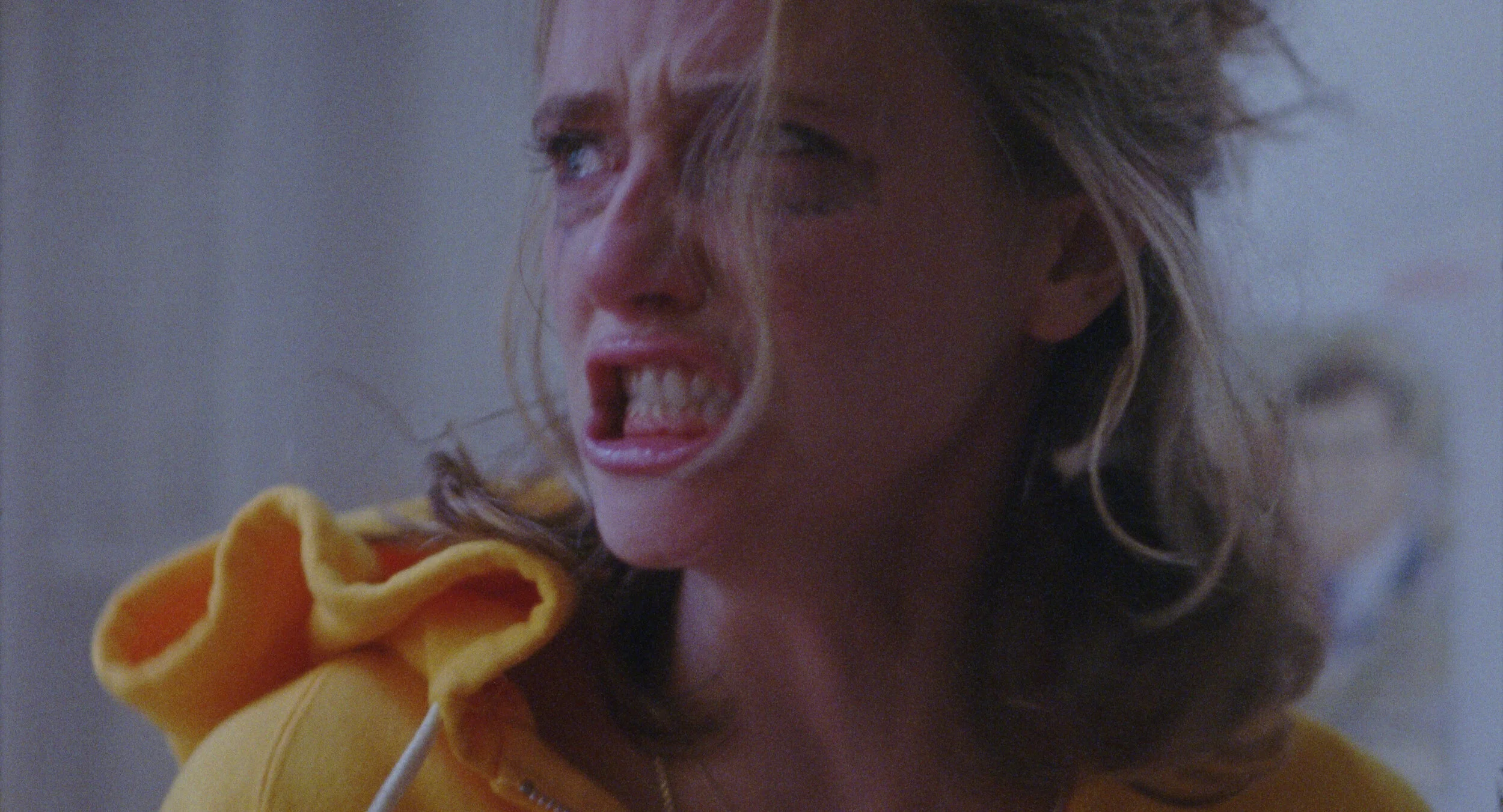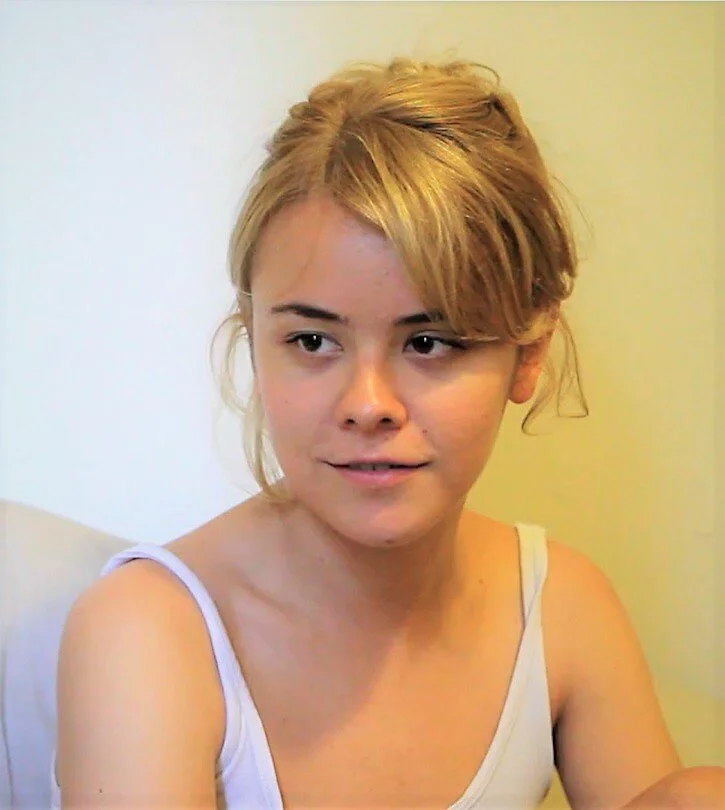The Scary of Sixty-First situates its psychedelic horror inside the Jeffrey Epstein scandal
At VIFF, posession and transgression as two roommates score an apartment whose previous tenant was a certain billionaire financier
The Vancouver International Film Festival presents The Scary of Sixty-First at the Rio Theatre on October 7 at 9 pm and October 10 at 3:30 pm, and online via VIFF Connect from October 1 to 11.
EVERYBODY SHOULD SEE The Scary of Sixty-First, but Prince Andrew should really see The Scary of Sixty-First.
“That would be interesting,” laughs writer-director Dasha Nekrasova. “Do you think he will?” Doesn’t seem totally implausible, unless he had his streaming privileges revoked along with his his official duties. Currently the most disgraced member from the criminally psychotic side of the House of Windsor, Randy Andy takes an uncredited role in Nekrasova’s crazed debut feature—the first and probably the last psychedelic horror film to situate itself inside the Jeffrey Epstein scandal.
The young actor-filmmaker is otherwise known as one half of the New York-based podcasting duo Red Scare, in which she and co-host Anna Khachiyan, both Russian-American, cast a bracingly gimlet eye on America’s ramped-up culture wars and synthetic political theatre.
“To put it most succinctly,” she tells Stir, calling from her home in New York, “I think Russians are a little better with nuance and grey area.”
As such, The Scary of Sixty-First internalizes a truth about Jeffrey Epstein that consistently eludes the mainstream: that his vast network of trafficking and blackmail was, in Nekrasova’s words, “a feature, not a bug” of a depraved but protected political and financial elite. However it might be presented by the New York Times, Epstein was no anomaly.
Writer-director Dasha Nekrasova
Yet The Scary of Sixty-First is also just a flip and funny horror flick, daring itself to get ever wilder with its transgressions while dropping smart callbacks to Eyes Wide Shut and American Psycho. It begins with roommates Addie and Noelle (Betsey Brown and co-writer Madeline Quinn) scoring an apartment in the Upper East Side. With the arrival of “The Girl” (Nekrasova), Noelle learns that the previous tenant was a certain billionaire financier, sending her on a speed-fuelled quest down the Epstein rabbit hole and through the streets of Manhattan, complete with a possible cameo by Ghislaine Maxwell. Poor Addie, meanwhile, becomes the victim of an apparent possession, prompting a spectacularly uninhibited performance from Brown and pushing the film into seizure-ready levels of high delirium.
It’s not unfair to ask, given how queasily entertaining it all is, if there aren’t perhaps some ethical issues that need to be addressed with The Scary of Sixty-First? Nekrasova thinks not. “I think it’s ethical, and a large moral impetus for making it was to centre the emotional truth of the Epstein story. I mean, I think it’s more unethical to peddle Netflix documentaries, condemning the salacious aspects, the sex crimes, but ignoring the overarching power structure that enables them.” She would know something about that. Like her character in the film, Nekrasova went perilously deep on the Epstein story and eventually found herself inside of it.
“I’m friends with one of Epstein’s victims,” she says, “a Jane Doe who testified at the [2019] special hearing—which I attended. I had already started working on the script and was doing a bit of Epstein ‘trutherism’ here in New York, and I was sort of publicly front-facing discussing this stuff, and I had known her prior to knowing this about her. Obviously it’s not something that she disclosed; she reached out to me when she started working with Gloria Allred and wanted help and input in crafting a statement that she could read in a press release.” Nekrasova adds: “It was very heartbreaking to hear the testimonies that day. I think there were about 30 women who got up and spoke in court.”
There’s an interesting ambivalence to her own character in Scary of Sixty-First, whose ‘trutherism’ dangerously unbalances “the Girl” and eventually consumes Noelle. Ultimately the film finds a position somewhere between a critique of online conspiritainment and a bid to extract and understand its value. “I don’t think my film is a satire of conspiracy theorists,” she says. “I think that it’s very compassionate, and it’s really about the emotional truth of conspiracy, which is, in many ways, more true than the narratives that are being perpetuated by the status quo. At the end of the day does it matter if Hilary Clinton is really a lizard who drinks blood? The harms and the crimes that she’s perpetuated are on that level, regardless.”
Worth mentioning here is that Nekrasova—who you can also catch in the upcoming season of Succession—received her first big flush of attention when a hapless team member from Alex Jones’s InfoWars channel set out to smear Bernie Sanders supporters at a 2018 South by Southwest party and made the mistake of accosting the wrong socialist. “You guys have worms in your brain,” Nekrasova told her, dispatching the reporter with withering cool while sealing her own online fame. In other words, she’s living proof that a rational grownup can still understand the full measure of something like the Epstein story and all that it implies; and that you don’t need to abandon reality to think the unthinkable. Quite the opposite, in fact. And to that end, let’s ask: if the powers that be can afford to throw a sweaty Prince Andrew under the bus, what does that tell us about whoever is still being protected? It’s a good question, says Nekrasova, but she’s probably right that the Duke of York might just be a special case.
“I mean, I think they were trying to protect Andrew for a long time,” she states, “but he’s just so dumb and so guilty that it became untenable, basically. He sort of did it to himself.”














